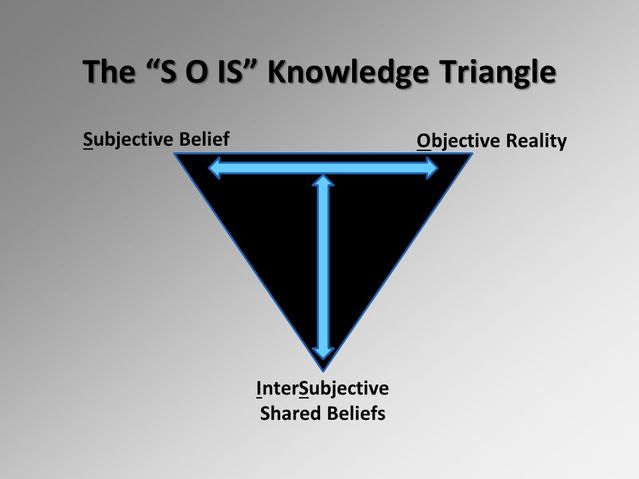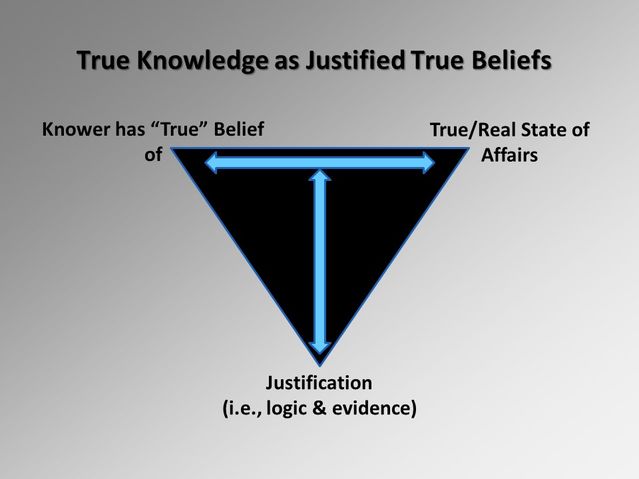Environment
BS and the Nature of Knowledge
Understanding the relationship between real knowledge and bullsh*t.
Posted October 11, 2018
What is real knowledge, and how is it separated from bullsh*t? This question jumped into my mind as I read Joshua Wakeham’s excellent article "Bullsh*t as a Problem of Social Epistemology." Wakeham opens his article by noting that bullsh*t is a widely complained about problem, emerging across virtually all human settings. Lawyers, doctors, psychologists, and many other professionals are often accused of peddling bullsh*t, not to mention folks who offer “alternative” viewpoints. A recent hoax demonstrated that bullsh*t could be accepted as legitimate in certain academic journals that operate from a social justice perspective. Politicians are seen by many—and especially by those in the opposing camps—as the kings of bullsh*t.
Wakeham defined bullsh*t based on Harry Frankfurt’s philosophical analysis. Frankfurt argued that bullsh*tting is distinct from lying as an activity. He characterized it as follows:
When an honest man speaks, he says only what he believes to be true; and for the liar, it is correspondingly indispensable that he considers his statements to be false. For the bullsh*tter, however, all these bets are off: he is neither on the side of the true nor on the side of the false. His eye is not on the facts at all, as the eyes of the honest man and liar are, except insofar as they may be pertinent to his interest in getting away with what he says. He does not care whether the things he says describe reality correctly. He just picks them out, or makes up, to suit his purposes.
Wakeham’s focus was on the function bullsh*t serves in social groups. That is, how social groups are inclined to construct realities based on their shared interests and goals. His point was that bullsh*t works to serve crucial social functions, such as persuading other people, enhancing one's position, and getting people to discount other viewpoints at odds with one's interests.
This point is an important and humbling point to digest. It results in the following question: If each person develops in the context of a socially constructed reality, how can we ever acquire knowledge that is separate from the groups in which we are embedded? Or, more bluntly, how can we even think about knowledge as being different from socially constructed bullsh*t? This is a tricky problem at the heart of the "modernist versus postmodern" debate about the nature of knowledge. I do not solve that problem here, but instead offer a quick and easy way to think about the nature of knowledge. In turn, this will help you think about authentic knowledge relative to bullsh*t. I call it the SO IS Knowledge Triangle.
The SO IS Knowledge Triangle integrates two important ideas about the nature of knowledge together. The first idea, as noted by Yuval Harari in his wide-ranging book Sapiens, is that considerations regarding human knowledge can be effectively captured by dividing it into three broad domains: 1) the Subjective (i.e., first-person experience and knowledge of the world); 2) the Objective (i.e., the conception of the world as it exists independent of subjective knowers); and 3) the InterSubjective (i.e., what groups of humans share as knowledge about the world). This is a rather familiar breakdown in philosophy. We can represent these points on a triangle as follows:

You should be able to readily identify these domains. First, there is your subjective view of the world. This is how you see the world and how you make sense of it, both perceptually (i.e., what you perceive in your private, conscious experience of the world) and how you make sense of the world conceptually (i.e., your narrative of the way the world works—the language-based part of your consciousness you can share with others). Second, there is the actual, objective truth of the world; how it really is, regardless of what is believed by you or anyone else. Finally, there are the shared belief systems that social groups develop—what Berger and Luckmann called the social construction of reality. I refer to the shared, verbal dimension of intersubjective reality as "justification systems."
The second idea that the SO IS Triangle incorporates is the idea that true knowledge is best conceptualized as justified true beliefs. Although there are some (justifiable) criticisms of this framework, it nevertheless is the case that the “justified true belief” approach to truth is one of the oldest and most venerable traditions in the philosophy of knowledge. We can forego technical criticisms, as it suits our purposes well here. Justified true beliefs can also be represented on a triangle as follows:

Notice that this directly corresponds to the SO IS triangle. The knower’s belief is the (Subjective) representation about something that is (Objectively) true—because it accurately corresponds to the actual state of affairs—and is justified, which in philosophy means legitimized by logical and empirical factors. To be clear about this last element, it is not considered knowledge if, for example, a child, when asked about the molecular nature of water, says “H 2 0” simply because he is parroting what he has heard. However, a chemist who answers “H 2 0” has knowledge because his representation is meaningfully networked and justified by much prior knowledge and careful deductive work.
These triangles are meant to help you frame your thinking about the nature of knowledge. You can combine the two by asking, "SO IS my knowledge justified? How and by whom?" Doing so orients you to think about knowledge as consisting of the subjective, objective, and intersubjective domains, and it orients you to reflect on the idea that true knowledge is that which is accurate and justified by compelling logic and evidence.
Now let’s come back to the topic of bullsh*t and connect it to justification. Only instead of thinking about justification as a philosopher does, let's think about it as an ordinary person does in the real world. First, in the real world, people have much more to worry about than the “epistemological accuracy” of their beliefs, which is the formal concern of philosophers. In the real world, beliefs generally function as tools that are used for pragmatic ends. That is, we generally believe what we do so that we can get along in the world. Although we care some about accuracy (inaccurate beliefs can obviously be problematic), we care even more about our goals and needs like survival, relationships, status, job security, and belonging. This means that what we want to be profoundly shapes the beliefs we have about what is.
To see how this works in the real world, let’s consider the dramatic Supreme Court controversy we all just witnessed. Here is a fact that I think we can all agree on: Different people perceived the reality of the hearings in different ways. Moreover, people tended to develop beliefs about what the reality of the situation was in a way that aligned with their subjective position and group alignment in the social world. That is, if a person’s subjective experience aligned them toward belief that sexual assault is a horrific and underreported problem and that we, as a society, need to work hard in the name of social justice to right past wrongs, and the person identified with others that shared this belief, then that person was much more likely to have experienced the Supreme Court hearings in a way that was sympathetic to Dr. Ford and the Democrats.
If, on the other hand, a person tended to believe that the pendulum of social justice has been swinging way out into what some characterize as "far-left craziness," and such a person was worried about the power that false accusations have in injuring innocent people, then that person is much more likely to have experienced the hearings in a way that was sympathetic to Mr. Kavanaugh and the Republicans.
With such an example in front of us, we can see clearly how and why bullsh*t will enter the equation in a massive way. Each side in the power struggle is attempting to control and justify the narrative toward their interests and goals. Thus, generating bullsh*t claims (what we might call "positive bullsh*t") is a way to shift the narrative. So to is claiming that actual facts are bullsh*t (what we might call "negating bullsh*t"). As the social groups compete, both positive and negating bullsh*t will run rampant throughout the system. And, it accumulates. The more bullsh*t there is, the harder and harder it is to have either knowledge (or sanity), which makes for more and more opportunities to fill in the confusion with more bullsh*t.
Unfortunately, all of this means that separating bullsh*t from true knowledge is not easy. It means we are swimming in bullsh*t and have been since the time we were born. And it means we are both predisposed to see it in others we disagree with and are distant from, all while being blind to seeing it in ourselves and the folks we align with.
Nonetheless, I believe we can do better than just siding with our team and believing whatever makes us feel good in the moment. For starters, we can attempt to make a commitment to seeking the truth. A simple place to start this commitment is by being clear about the SO IS Knowledge Triangle and the nature of truth as justified true beliefs.
And we can all periodically reflect on the limits of our knowledge via reciting the humbling adage from my friend and colleague, Dr. Craig Shealy:
We are all full of sh*t, just to different degrees and different degrees of awareness.




